Phipps Stories
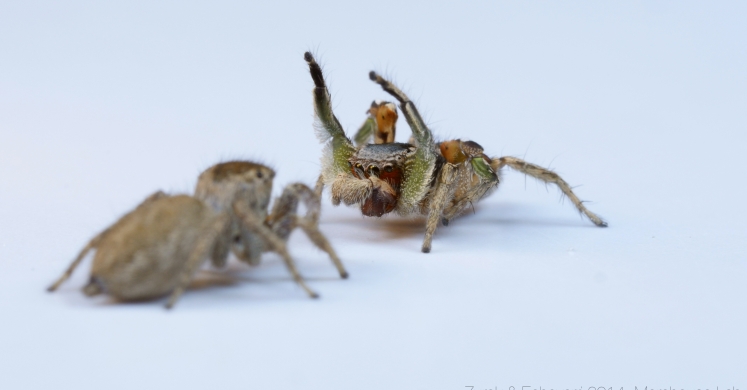
Interview with a Scientist: Sebastian Echeverri, Caitlin Drummond and Kim Howell
If there is one segment of society that is often misunderstood, it is people who work in science fields. Public perception of scientists tends to lean towards lab coats, crazy hair, and beakers full of chemicals, especially in the eyes of children. In reality, most scientists are just regular people who want to make the world a better place through scientific discovery. The best way to dispel the myth that scientists are boring or crazy is to get to know them; the purpose of this segment is to talk with real scientists to ask them what they love about their jobs and why they think their work is fun and important.
This weekend we will be featuring our Fall 2015 Science Communication fellows, Sebastian Echeverri, Caitlin Drummond and Kim Howell, at our "Meet a Scientist" public program. The Science Communication Fellowship program at Phipps seeks to bring scientists and public audiences together in face-to-face public interactions that promote appreciation and understanding of current scientific research and its application. As part of this programming, Phipps will be holding a monthly "Meet a Scientist" public program, beginning this Saturday, October 17th from 1:30 until 2:30 PM in the Tropical Forest Palm Circle, where visitors can engage with our science communication fellows and learn all about their research and occupations and even see the very instruments and equipment utilized everyday by scientists. Let's get to know the fellows!
Science Communication Fellow, Sebastian Echeverri
Hi, my name is Sebastian Alejandro Echeverri, and I am a PhD student at the University of Pittsburgh. I am interested in discovering how animals see and perceive the world around them, and how that shapes their behavior. In particular, I study the eyes of jumping spiders and the colorful dances they use to communicate with each other. Before coming to Pitt, I did my undergraduate degree in Biology and Applied Physics at the University of Miami. In my free time, I enjoy hiking, birdwatching, and nature photography.
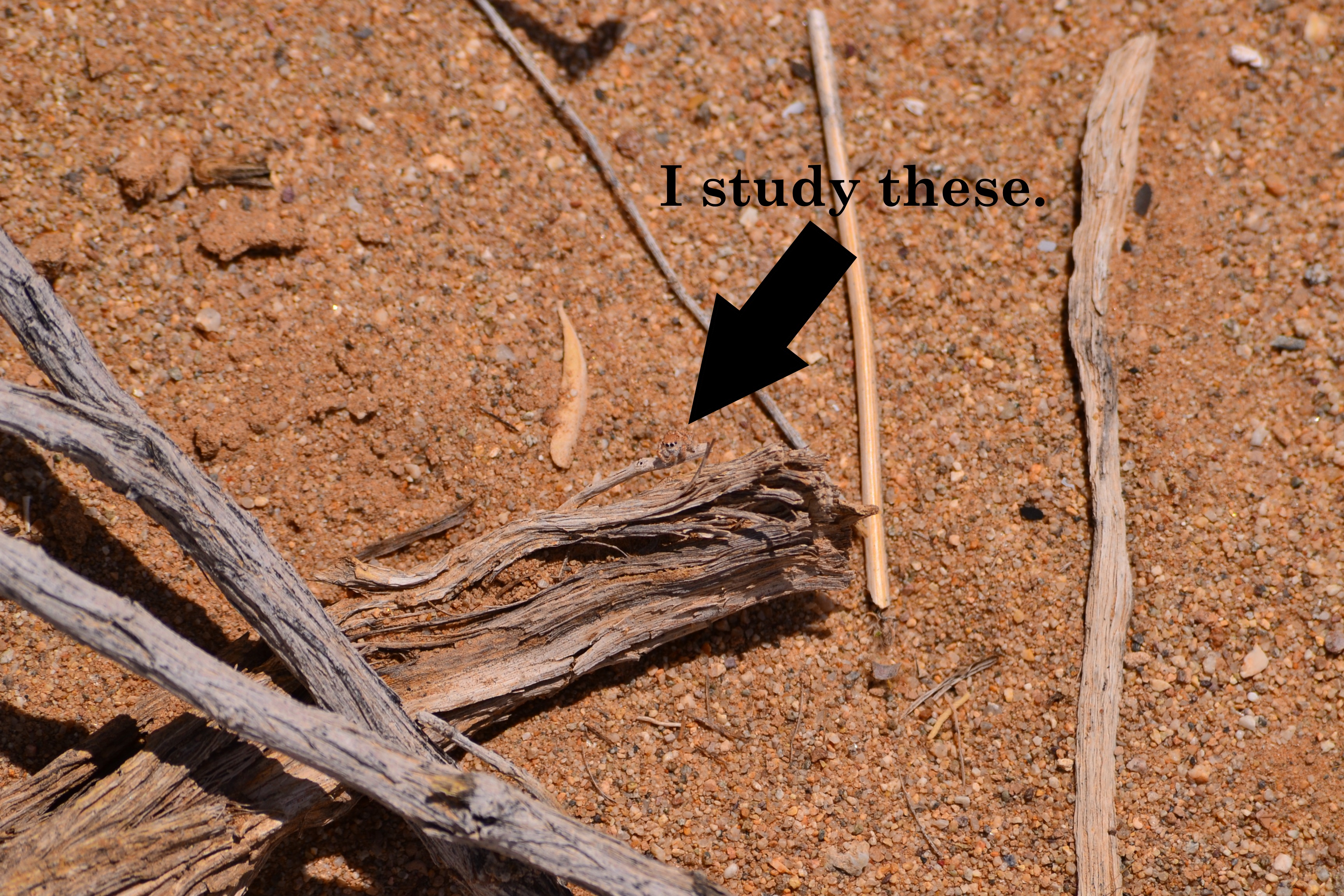
Why did you become a scientist?
I was raised on a steady diet of Bill Nye the Science Guy and Steve Irwin's Crocodile Hunter. I've been fascinated with learning about cool animals since I was a kid, and as a scientist, I get paid to not only discover new things about animals, but to share my findings with the rest of the world. It's basically what I used to do in my free time, but now more rigorous and peer reviewed.
What is the most exciting thing you've ever done at work?
Does fieldwork count as "at work"? This summer, I spent a month traveling across the Southwest hunting for spiders. It was pretty amazing. If we are just talking about things done in the lab, last fall we rented a super high speed camera (~300fps) and were able to watch our spiders dance in super slow motion. One species moved so fast that without this camera we weren't able to clearly see parts of the male's courtship!
What skills do you use in your job?
Just to keep all our animals hale and hearty requires a good deal of animal care and organization skills. Animal handling experience is also a must when doing behavioural experiments with live spiders Planning experiments is big on the critical thinking and organization. I've also done a fair bit of Matlab programming for my data analysis. There's also a big call for creativity and problem solving at all steps.
What is your favorite part of your job?
Probably catching spiders, as well as the rest of fieldwork. I love being out in nature, and hunting for spiders can be really exciting. Especially when I find one I haven't seen before! I keep a vial (or two or three..) on me almost all the time just in case.
If you weren't a scientist, what would you be?
In an ideal world, an astronaut. But honestly, probably an engineer of some sort. I like building things too.
Why is science education important?
Science is a method for discovering why the world around us is the way it is. Thinking, discovering, and learning are some of the most human things we can do, and science is the tool that lets us do so. Science education not only boosts our rate of discovery, but it also helps non-scientists understand and appreciate how far we've come and how precious this world is.
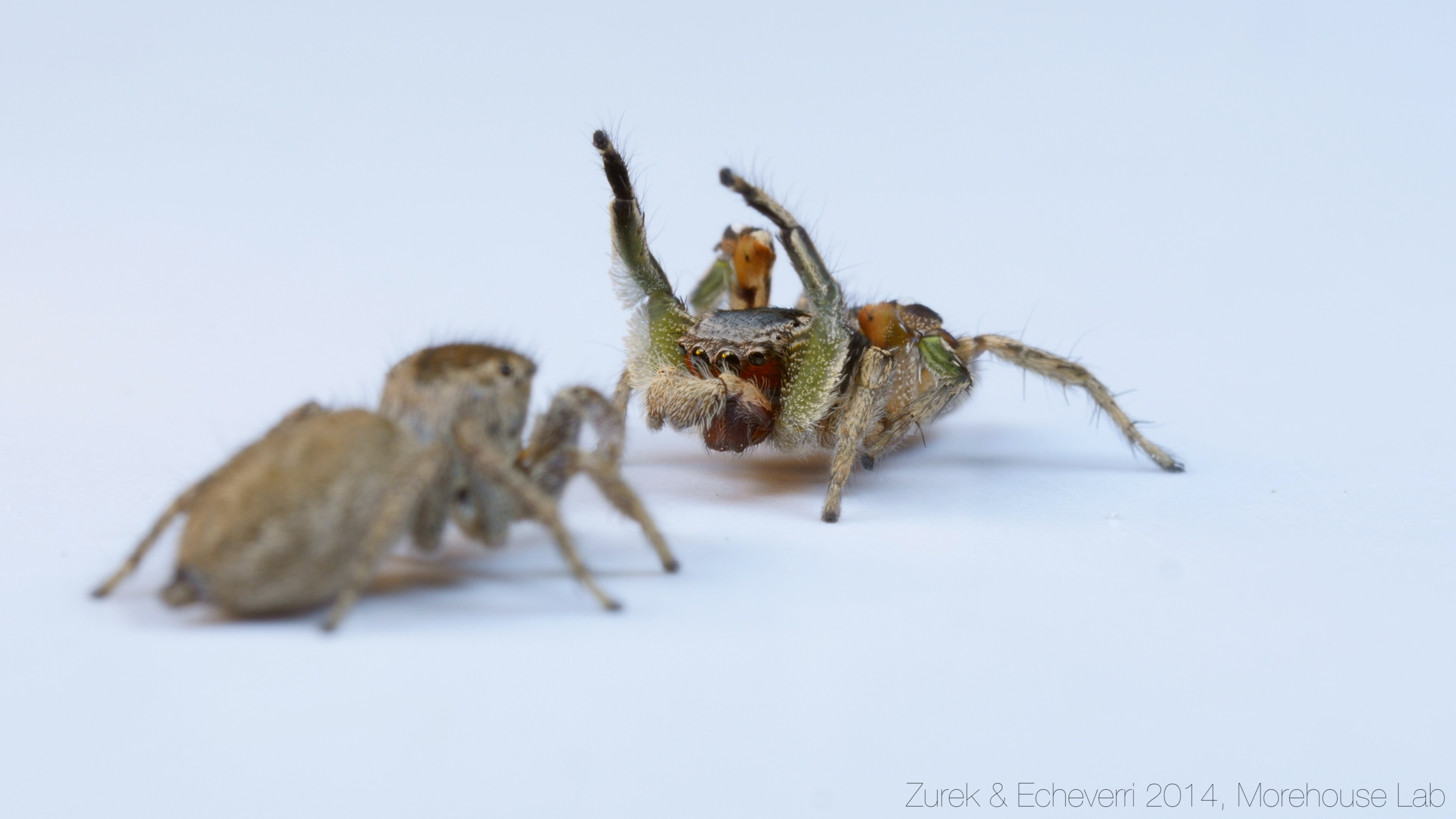
Science Communication Fellow, Caitlin Drummond
My name is Caitlin Drummond, and I am a PhD student at Carnegie Mellon University here in Pittsburgh. As a social scientist, I study how people make decisions, drawing on my background in psychology and economics. My research focuses on how people make decisions and form opinions about scientific issues. I’m particularly interested in why some science is trusted, but other science generates controversy.
Why did you become a scientist?
The short answer is: I think it’s really exciting! When I was an undergraduate in college, I started working as a research assistant for a psychology professor. I was totally hooked. Scientific research was a completely new way of trying to understand my own behavior and the behavior of others around me. By turning the big questions I had about human behavior into smaller questions that could be answered using careful experiments, I was slowly gaining a new understanding of myself and others.
What is the most exciting thing you’ve ever done at work?
It’s really exciting to conduct an experiment, analyze my data, and find that my data support my hypothesis. It’s like, hooray, I might be on to something! Of course, sometimes my results are not quite what I expected. But that’s exciting too, because thinking through unexpected results can lead me to form new ideas.
What skills do you use in your job?
I love that my job requires me to draw on so many different skills. I’m constantly using (and striving to improve!) my critical thinking skills, as I design experiments to test my research questions. I draw on my mathematical and statistical skills when collecting and analyzing data. Communication is also very important, whether I am writing an academic paper, presenting my research to my colleagues, or chatting with family and friends about what I do.
What is your favorite part of your job?
I love studying human behavior because, in an odd way, I’m always surrounded by my research. A chance comment from a conversation with a friend might help me to think about a research question in a whole new light. There is so much more to learn about how humans form judgments, make decisions, and interact with each other, and being a social scientist has made me more appreciative of other people’s diverse backgrounds and perspectives.
If you weren’t a scientist, what would you be?
I always joke that my “backup career” (in case this whole science thing doesn’t work out!) is opening a bakery. I have a huge sweet tooth and I love trying out new recipes. The people in my department have, by this point, sampled a variety of my baked goods—I’m always leaving scones, or pumpkin cookies, or banana bread in our departmental office.
Why is science education important?
To me, science is a way of thinking about the world we live in. Scientific thinking is not always intuitive, but learning to think like a scientist can help us to become better problem-solvers and more critical consumers of information.
Science Communication Fellow, Kim Howell
My name is Kim Howell and I am a first year graduate student in the University of Pittsburgh’s biological sciences department. I did my undergraduate work at Luther College in Decorah, IA where I conducted research on the fungal endophytes of prairie grasses. Endophytes live within the leaves of plants and are known to confer benefits such as increased growth, drought tolerance, and herbivore resistance to the plant they reside in. I worked to isolate these fungi from several different prairie grasses and identify them from their DNA. I also experimentally added one or two of these fungi to young individuals of Indian grass so that I could assess their effect on growth of the grass.
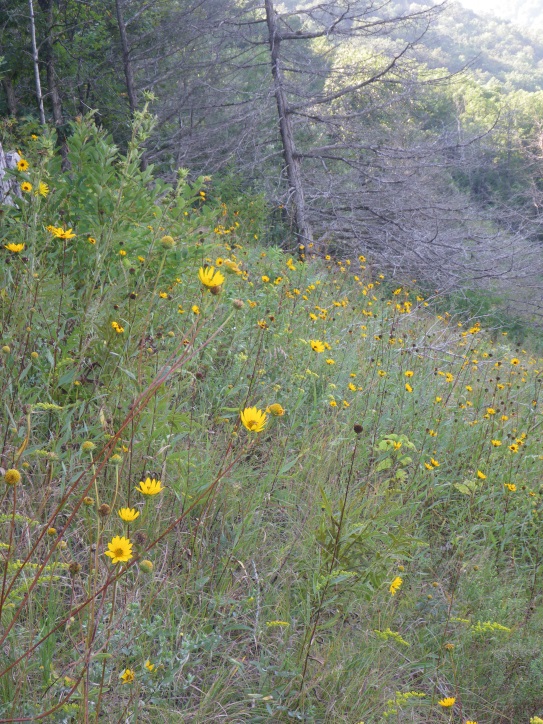
Why did you become a scientist?
I honestly do not know what drew me initially to biology, but once I got into the discipline and started doing research as an undergrad, I realized that I really liked having the chance to design experiments to answer a question that no one knows the answer to.
What is the most exciting thing you’ve ever done at work?
As an undergrad, I got the opportunity to visit a hill prairie that is off-limits to the public to collect some grass samples. It’s in a really beautiful location and I even got to see a wild bald eagle flying around on one visit which was really cool to see. As a hill prairie, it’s on a really steep slope which makes walking around the prairie a real challenge, though it doesn’t look too bad in this picture. These prairies are often called goat prairies because you have to be a mountain goat to walk easily on them!
What skills do you use in your job?
Critical thinking is a really important skill as a scientist, so that you can design the best experiment possible to answer your question and analyze the results. Also important is to be careful and pay attention to details. My senior year of undergrad, I was taking care of the sunflowers for my advisor’s field research while he was away on sabbatical. I noticed that some of the plants were developing leaves that were a paler green in some places. Working with my advisor, we were able to determine that it was likely a nitrogen deficiency causing it based on where the paler green was showing up so we applied fertilizer which seemed to alleviate the problem. Careful attention to details on my part helped to ensure the health of the sunflower plants.
What is your favorite part of your job?
I love the moment of discovery when you find something new or exciting. It doesn’t have to be some major scientific breakthrough; even a cool looking fungus that you isolated or finding out that some small part of your experiment worked is always exciting to discover.
If you weren’t a scientist, what would you be?
I would love to be a dancer for Riverdance. I have been Irish dancing since I was in 5th grade and it’s always been a dream of mine to dance with Riverdance. More realistically though, maybe I’d be a naturalist or something that lets me spend time outdoors.
Why is science education important?
Science education is important because science affects so much of our lives, from modern medicine to producing better crops for food. The better everyone understands how science is done and how to interpret the results, the more informed our decisions about issues like climate change will be.
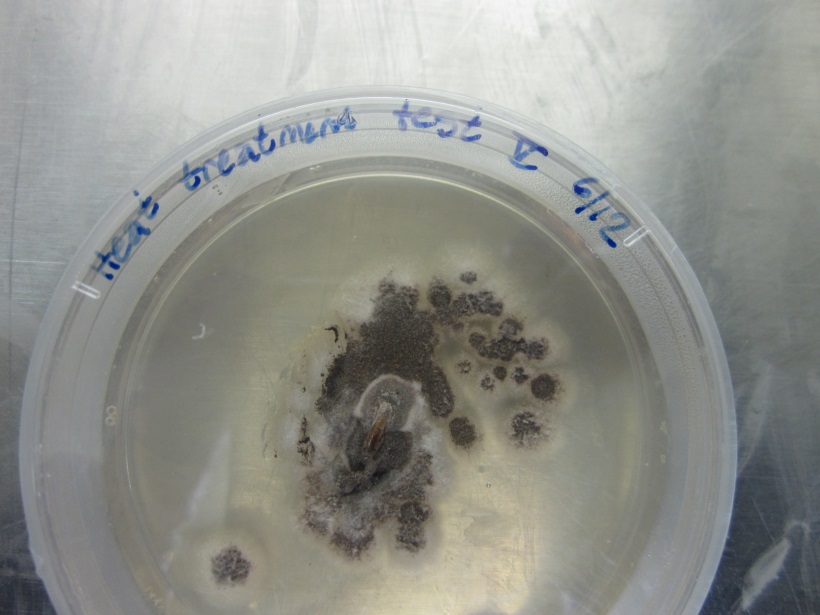
If you'd like to learn more about our Science Communication fellows and their work stop by the Tropical Forest Palm Circle on Saturday, October 17th from 1:30 until 2:30 PM for our "Meet a Scientist" Public Program.
Photographs provided by Science Communciation Fellows.

